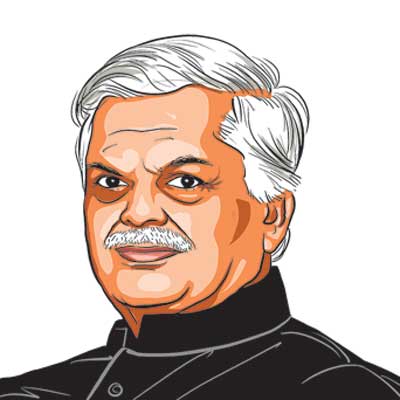Opinion A new Merkel in the making
German leader visits China,with an eye on her image at home and in Europe
When Germanys Chancellor Angela Merkel arrives in China today it will be her second visit in a year. The visit takes place against the backdrop of forecasts of a difficult September for the eurozone and Germanys desire to sustain its exports to the lucrative China market. Germany also needs Chinese investments,especially in the bonds it has issued to prop up the euro.
What is interesting about the visit to Beijing is that Merkel spent last week bolstering her political position both at home in Germany and in the eurozone. She sent out a clear message to her ministerial colleagues and political allies that the time had come to halt all loose talk about Grexit the exit of Greece from the eurozone. She then assured visiting Greek Prime Minister Antonis Samaras that Germany remained committed to Greeces membership of the eurozone,even while reminding him that Greece has to do more to regain economic competitiveness and secure fiscal stability.
While it required political courage to take such a tough stance,taking the tough stance itself would help strengthen her position at home and boost her leadership across the eurozone. There is now no doubt that Merkel will work to preserve both the European Union and the eurozone and is willing to commit Germany to that cause. If she succeeds,she will emerge as the first great leader of Europe in the 21st century.
This stance suggests that Merkel appreciates the essence of the argument that Francois Heisbourg,from the International Institute for Strategic Studies (IISS),put forward in a recent essay: a federal arrangement is not thrown asunder because of problems at the periphery but because of failure at the heart of the system. Merkel has come to terms with the fact that Germany and its chancellor are at that centre and so must act to preserve the unity of the whole. The eurozone,if not the EU,cannot be saved in Greece or Finland if it cannot be saved in Germany and if Germany does not remain committed to that objective. This is precisely what Merkel has defined as her political goal for the rest of her term.
After sending these unambiguous messages to her domestic and European constituents,Merkel sent out a message to the world,announcing her second visit to Beijing. The visit,beginning today,underscores Germanys increasingly important relationship with China. Equally,it represents the importance China attaches to its relationship with Germany,given that both these capital-surplus,export-dependent economies have shared concerns about the post-crisis global economy and the future of their respective currencies.
In recognition of this emerging reality and of Germanys newfound clout within Europe,Chinese Prime Minister Wen Jiabao welcomed a delegation of German business leaders to Beijing this May with the words: Stronger China-Germany mutually beneficial cooperation is good for the two countries,good for China-EU relations,and good for world prosperity and stability. The strategic dimension of China-Germany relations,therefore,can only be strengthened,not weakened.
There are several dimensions to this strategic relationship. Germany needs Chinas markets and the funds it can deploy buying up German and European bonds. Germany has over 7,500 enterprises functioning in China with gross investment adding up to $18.5 billion. Germany has sold $15 billion worth of technology to China and bilateral trade hit a high of $169 billion in 2011,amounting to 30 per cent of China-EU trade. The two countries have set a bilateral trade target of $280 billion for 2015.
Trade,however,is not the only immediate concern. Far more important,especially for Germany,is to get China to invest in its bonds and remain invested. At a recent lecture,CEO of the European Financial Stability Facility (EFSF) Klaus Regling underscored the importance of Chinese demand for EFSF bonds and Chinas role in stabilising the eurozone.
Regling also said that there is now increased coordination among monetary authorities in the United States,Germany and China,drawing attention to the fact that the old Triad of the US dollar,the euro and the Japanese yen may now have been replaced by a new Triad of the dollar,the euro and the Chinese renminbi. While Regling spoke of an emerging multipolar monetary system,he in fact drew attention to the functioning of a tripolar system.
Part of that monetary triangle,the eurozone and China have acquired a geopolitical stake in helping each other. Hans Kundnani and Jonas Parello-Plesner of the European Council on Foreign Relations view the China-Germany relationship as one that will shape the overall China-Europe,or at least eurozone,relationship. Like many strategic analysts,they worry whether,in pursuit of purely short-term economic interests,Germany would forsake long-term strategic interests as well as concerns about human rights and other political and geopolitical issues.
It is,therefore,significant,that German political parties have emphasised the need for Merkel to raise larger human rights and environmental concerns,press freedoms and geopolitical issues in her talks with Chinese leaders. However,Merkels focus may well remain on trade,investment and currency flows because unless she can turn the eurozone around,her rising profile at home and in Europe could easily wither.
To secure German leadership of Europe and her own leadership of Germany,Merkel has to walk on two legs,so to speak. She has to balance geo-economic and geopolitical elements,both interests and values,in advancing Germanys relations with China. Equally,Merkel will have to keep an eye on how her rising global profile will be viewed within Europe. Will the eurozone members see her diplomatic activism as aimed at helping Europe,or at enabling the rise of a new Germany?
The writer is director for geo-economics and strategy,International Institute for Strategic Studies and senior fellow,Centre for Policy Research,New Delhi. express@expressindia.com





